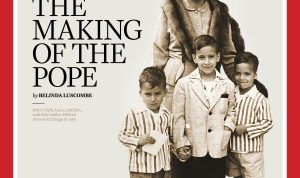President John F. Kennedysaidin 1961 that “there is no escaping” what he described as America’s “moral obligations as a wise leader and good neighbor in the interdependent community of free nations; our economic obligations as the wealthiest people in a world of largely poor people, as a nation no longer dependent upon the loans from abroad that once helped us develop our own economy; and our political obligations as the single largest counter to the adversaries of freedom.”
He was speaking to Congress about foreign aid and later that year would establish throughexecutive orderwhat has since been known as the U.S. Agency for International Development (USAID), which helped make the U.S. the world’s largest foreign aid provider.
For more than six decades, USAID has helped dozens of low- and middle-income countries, including conflict-stricken ones, to improve access to food, water, health care, and education. It’s helped stop disease outbreaks, revolutionize agricultural practices, and in some cases, promote democracy.
But on Tuesday, USAID shutters its doors for good.
The agency’sdismantlingbegan just days after President Donald Trump returned to the White House at the start of this year. Tech billionaire andone-time Trump ally Elon Musk, who was spearheading the Department of Government Efficiency, singled out the agency as a locus of “corruption and waste,”despite the fact that it constituted just about 0.5% of government spending.
Secretary of State Marco Rubio, who took the reins of the agency in February,saidin March that more than four-fifths of USAID programs were cancelled, and the approximately 1,000 that remained would be absorbed by the State Department byJuly 1, even amidcourt battlesabout the constitutionality of USAID’s closure.
On the eve of USAID’s final day, former Presidents George W. Bush and Barack Obama gathered with former staffers as well as U2 singer and humanitarian Bono on a video call. Obama described USAID’s gutting as a “travesty” and a “tragedy,” according to theAssociated Press.
“You’ve showed the great strength of America through your work,” Bush told the USAID staffers. “Is it in our national interests that 25 million people who would have died now live? I think it is, and so do you.”
Just how many lives won’t be saved as a result of the closure of USAID has been the subject of several studies andprojections.
On Monday, medical research journalThe Lancetestimated that USAID prevented the deaths of more than 90 million people between 2001 to 2021. The study, conducted by researchers from Brazil, Mozambique, and Spain, forecasted that the defunding of the agency could lead to some 14 million deaths by 2030, including 4.5 million deaths of children and babies under the age of 5.
Here are some of the biggest estimated impacts of the U.S. shirking Kennedy’s “obligations.”
To fight against HIV globally, President Bush launched PEPFAR, or the U.S. President’s Emergency Plan for AIDS Relief, in 2003. The program supports some 20.6 million people with HIV worldwide, including 566,000 children, through providing anti-retroviral therapy (ART) to control the infection. The program also provided HIV testing services to 83.8 million people in 2024.
USAID was PEPFAR’smain implementing agency, and while the State Department is seeking$2.9 billionin funding to continue HIV-AIDS programs, it’s far lower than theat least $4.7 billionbudget PEPFAR had.
Astudypublished in theRetrovirologyjournal in March said that the suspension of USAID funding could hamper access to ART and cause a potential resurgence of up to630,000HIV-AIDS-related deaths annually, withsub-Saharan Africamost affected.
USAID has invested$9 billionto help tackle malaria, the mosquito-borne illness that is preventable and curable but causes millions of deaths in Africa every year, since the inception of the President’s Malaria Initiative (PMI) in 2005.
Animpact trackerby Boston University infectious disease mathematical modeller and health economist Dr. Brooke Nichols and Amsterdam-based product managerEric Moakley forecast almost 10 million additional cases of malaria globally—of which an estimated 7 million would affect children—in just one year due to USAID funding cuts.
The tracker also only considered African countries that were part of PMI and did not include countries in Asia that have also been supported by USAID. “Thus we may be underestimating the effect of PMI’s cessation,” it said.
The war-torn northeast African country of Sudan was among those worst hit by USAID’s suspension.More than halfof its 50 million population is in need of humanitarian assistance as residents suffer from famine and disease outbreaks amid ongoing conflict. The World Health Organization estimates that 5 million Sudanese people may lose access to “lifesaving” health services as a result of the cuts, according to theWashington Post.
Naomi Ruth Pendle, a lecturer at the University of Bath in the U.K., wrote forThe Conversationin April that the sudden suspension of USAID is “is set to make the famine in Sudan the deadliest for half a century.”
